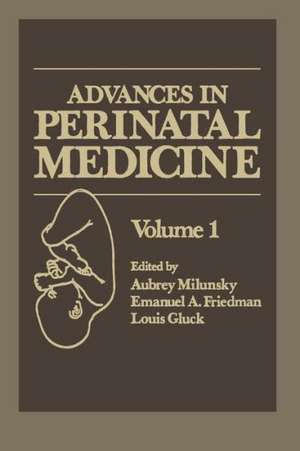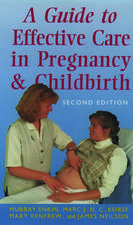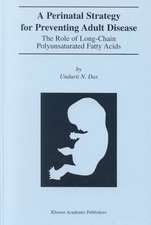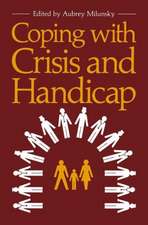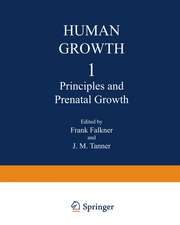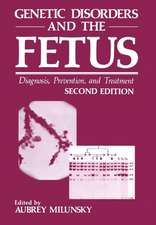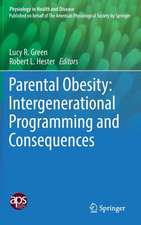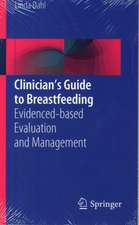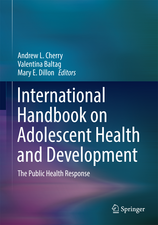Advances in Perinatal Medicine: Volume 1
Autor Aubrey Milunsky, Emanuel A. Friedman, Louis Glucken Limba Engleză Paperback – 7 aug 2013
| Toate formatele și edițiile | Preț | Express |
|---|---|---|
| Paperback (2) | 720.68 lei 6-8 săpt. | |
| Springer Us – 20 ian 2013 | 720.68 lei 6-8 săpt. | |
| Springer Us – 7 aug 2013 | 723.42 lei 6-8 săpt. |
Preț: 723.42 lei
Preț vechi: 761.49 lei
-5% Nou
Puncte Express: 1085
Preț estimativ în valută:
138.44€ • 150.33$ • 116.29£
138.44€ • 150.33$ • 116.29£
Carte tipărită la comandă
Livrare economică 22 aprilie-06 mai
Preluare comenzi: 021 569.72.76
Specificații
ISBN-13: 9781475744538
ISBN-10: 1475744536
Pagini: 460
Ilustrații: XVII, 438 p. 154 illus.
Dimensiuni: 152 x 229 x 24 mm
Greutate: 0.61 kg
Ediția:1981
Editura: Springer Us
Colecția Springer
Locul publicării:New York, NY, United States
ISBN-10: 1475744536
Pagini: 460
Ilustrații: XVII, 438 p. 154 illus.
Dimensiuni: 152 x 229 x 24 mm
Greutate: 0.61 kg
Ediția:1981
Editura: Springer Us
Colecția Springer
Locul publicării:New York, NY, United States
Public țintă
ResearchCuprins
Neonatal and Infantile Apnea.- Perinatal Damage to the Developing Brain.- Complications and Management of Breech Presentation.- Intrauterine Fetal Growth Retardation.- Ultrasound in Normal and High-Risk Pregnancy.- Behavioral Teratogenesis.- Effects of Uterine Contractility on the Fetal Cranium.- Effects of Pressure Gradient on the Fetal Cranium.
Descriere
Descriere de la o altă ediție sau format:
The state of health care is reflected by perinatal and neonatal morbidity and mortality as well as by the frequencies of long-term neurological and developmental disorders. Many factors, some without immediately recognizable significance to childbearing and many still unknown, undoubtedly contribute beneficially or adversely to the outcome of pregnancy. Knowledge concerning the impact of such factors on the fetus and surviving infant is critical. Confounding analyses of pregnancy outcome, especially these past 2 or 3 decades, are the effects of newly undertaken invasive or inactive therapeutic approaches coupled with the advent of high technology. Many innovations have been introduced without serious efforts to evaluate their impact prospectively and objectively. The consequences of therapeutic misadventures character ized the past; it seems they have been replaced to a degree by some of the complications of applied technology. Examples abound: after overuse of oxygen was recognized to cause retrolental fibroplasia, its restriction led to an increase in both neonatal death rates and neurologic damage in surviving infants. Administration of vitamin K to prevent neonatal hemorrhagic disease, particularly when given in what we now know as excessive dosage, occasionally resulted in kernicterus. Prophy lactic sulfonamide use had a similar end result. More recent is the observation of bronchopulmonary dysplasia as a complication of re spirator therapy for hyaline membrane disease. The decade of the eighties opened with the all-time highest rate of cesarean section in the United States.
The state of health care is reflected by perinatal and neonatal morbidity and mortality as well as by the frequencies of long-term neurological and developmental disorders. Many factors, some without immediately recognizable significance to childbearing and many still unknown, undoubtedly contribute beneficially or adversely to the outcome of pregnancy. Knowledge concerning the impact of such factors on the fetus and surviving infant is critical. Confounding analyses of pregnancy outcome, especially these past 2 or 3 decades, are the effects of newly undertaken invasive or inactive therapeutic approaches coupled with the advent of high technology. Many innovations have been introduced without serious efforts to evaluate their impact prospectively and objectively. The consequences of therapeutic misadventures character ized the past; it seems they have been replaced to a degree by some of the complications of applied technology. Examples abound: after overuse of oxygen was recognized to cause retrolental fibroplasia, its restriction led to an increase in both neonatal death rates and neurologic damage in surviving infants. Administration of vitamin K to prevent neonatal hemorrhagic disease, particularly when given in what we now know as excessive dosage, occasionally resulted in kernicterus. Prophy lactic sulfonamide use had a similar end result. More recent is the observation of bronchopulmonary dysplasia as a complication of re spirator therapy for hyaline membrane disease. The decade of the eighties opened with the all-time highest rate of cesarean section in the United States.
